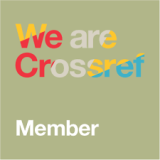PENGARUH LABEL HALAL TERHADAP KEPUTUSAN MASYARAKAT MEMBELI PRODUK MAKANAN DAN MINUMAN (Studi Kasus Lingkungan VI Kelurahan Nangka Binjai Utara)
Abstract
Full Text:
PDFReferences
Abdullah, Thamrin dan Tantri, Francis. (2012). Manajemen Pemasaran. Jakarta: PT. Raja GrafindoPersada.
Ady Syahputra dan Haroni Doli Hamoraon, Pengaruh Labelisasi Halal Terhadap Keputusan Masyarakat Kecamatan Perbaungan Dalam Pembelian Produk Makanan Dalam Kemasan, ( Medan, Jurnal, 2014), hlm. 478.
Akmal, Azhari Tarigan. (2012).Tafsir Ayat-Ayat Ekonomi Al-Qur’an. Bandung: Citapustaka Media Perintis.
Apriyantono Anton dan Nurbowo. (2003) Panduan Belanja dan Konsumsi Halal. Jakarta: Khairul Bayan.
Depdiknas. (2007). Kamus Besar Bahasa Indonesia. Jakarta: Balai Pustaka.
Gitosudarmo,Indriyo. (2014) Manajemen Pemasaran Edisi Kedua. Yogyakarta : BPFE.
Janwari, Yadi. (2016). Pemikiran Ekonomi Islam. Bandung: Rosda.
K.A. Endin (Anggota Dewan Pembina LPPOM MUI), Prosedur dan syarat Mendapatkan Sertifikasi Halal. Diakses Melalui: berempat.com, Pada 18 April 2020.
Kementerian Agama RI. (2018). Tikrar Qur’an Hafalan Tajwid & Terjemah. Bandung, Sygma.
Muhammad. (2016). Ekonomi Mikro Islam. Yogyakarta: BPFE Yogyakarta.
Poerwadarminta, W.J.S. (1985). Kamus Umum Bahasa Indonesia. Jakarta: PN Balai Pustaka.
Rasyid,Sulaiman. (1998) Fiqh Islam. Jakarta: Attahiriyah.
Rivai Zainal, Veithzal. (2017). Islamic Marketing Management. Jakarta: Bumi Aksara.
Suharso, dan Sutarso Yudi. (2010). Marketing in Practice. Yogyakarta: Graha Ilmu.
Tjiptono,Fandy. (1997) Strategi Pemasaran. Yogyakarta: Andi.
Trisnawati Erni dan Hasanudin Muhammad. (2016). Manajemen Bisnis Syariah. Bandung: PT. Refika Aditama.
Wan Satria Adilla. Pengaruh Label Halal Terhadap Keputusan Konsumen Dalam Pembelian Produk Makanan Kemasan (Studi Kasus Pada Pegawai Dinas Syariat Islam Kota Banda Aceh). Banda Aceh: Jurnal, 2017.
DOI: http://dx.doi.org/10.30829/ajei.v5i2.8447
Refbacks
- There are currently no refbacks.
Copyright (c) 2020 Raja Sakti Putra Harahap

This work is licensed under a Creative Commons Attribution-ShareAlike 4.0 International License.





3.jpg)






